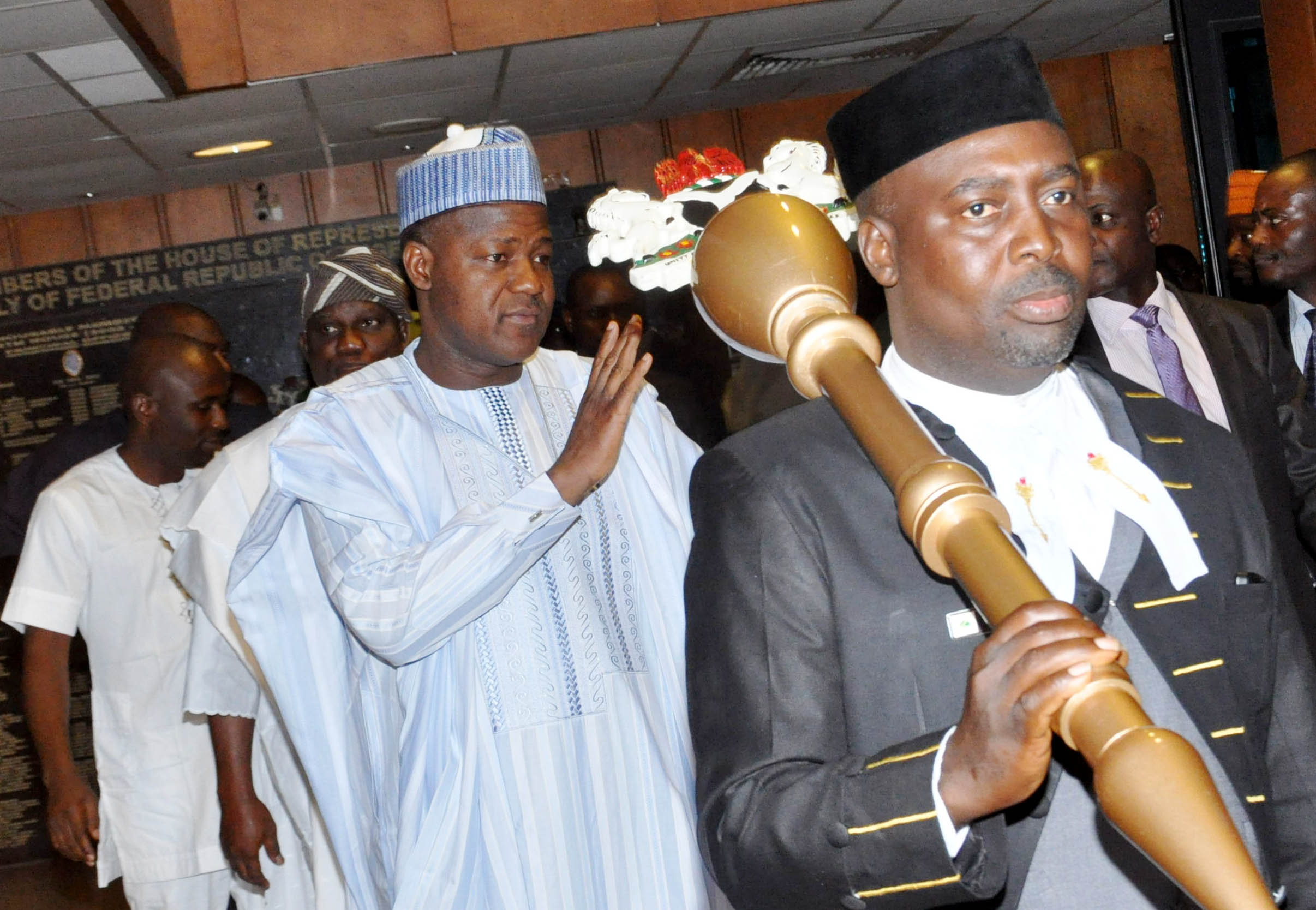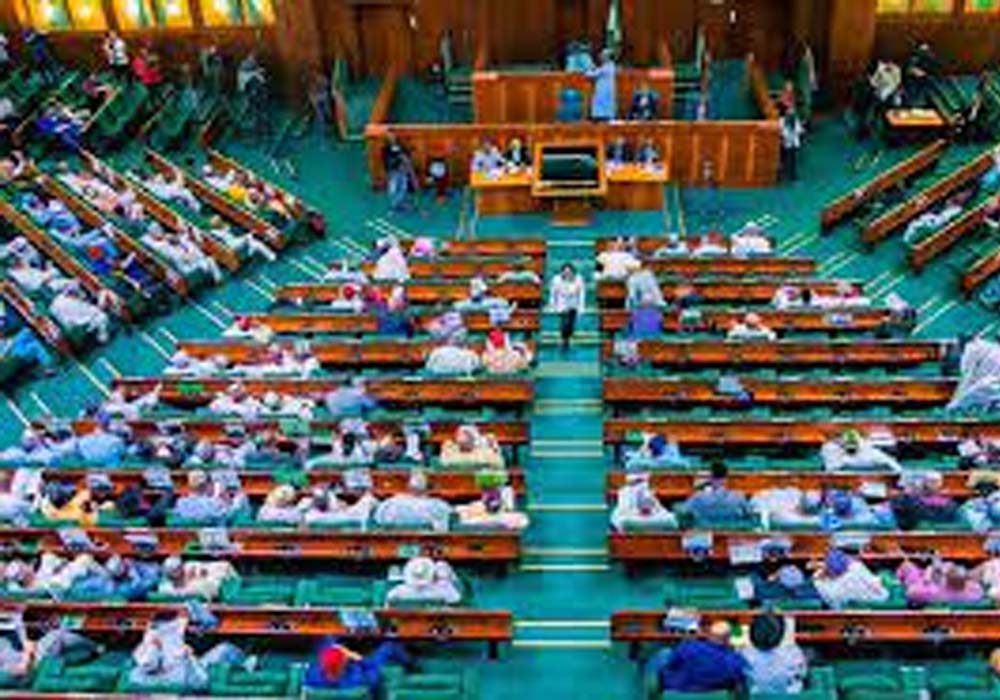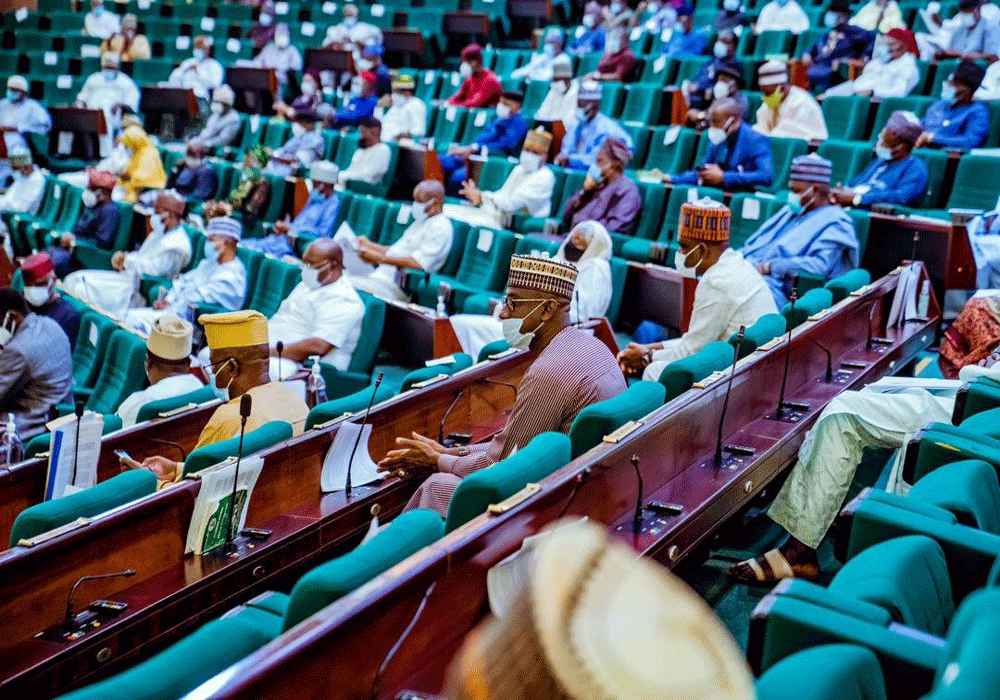NEWS
Reps Committee to Probe Deal Involving 48m Barrels of Oil

Following a whistle-blower’s allegation of illegal sale of 48 million barrels of Nigeria’s Bonny Light crude in China in 2015 and the insurance status of the cargo, the House of Representatives has resolved to constitute an ad hoc committee to look into the matter.
In a dramatic twist, another member of the House, Hon Mark Gbilah, whose name was listed as co-sponsor of the motion, raised a point of order to disown it.
However, the House resolved to proceed with the investigation with the committee also charged to investigate all crude oil exports and sales by Nigeria from 2014 to date, with regards to quantity, insurance, revenue generated, remittances into the Federation Account or other accounts as well as utilisation of the revenue for the period under review.
The panel was also mandated to investigate all proceeds recovered through the Whistle-Blowers Policy under the administration of President Muhammadu Buhari with a view to determining the level of compliance with the policy.
The committee has a four-week period to table it’s findings before the House for further legislative action.
These resolutions followed the unanimous adoption of a motion moved by a member of the House, Ibrahim Isiaka, titled ‘Alleged Loss of over $2.4 Billion in Revenue from Illegal Sale of 48 Million Barrels of Crude Oil Export in 2015, Including Crude Oil Exports from 2014 till Date.’
In the motion, Isiaka stated, “The House is aware of the allegations by a whistle-blower in July 2020 that he (the whistle-blower) had in July 2015, and in response to the current administration’s whistle-blower policy, brought to the attention of a committee purportedly set up by the President for the recovery of missing crude oil exports, the existence of 48 million barrels of Nigeria’s Bonny Light crude oil in storage at several ports in China, ostensibly under the authorisation of the Nigerian National Petroleum Corporation, and the intention of parties in China and the NNPC to sell this cargo.
“The House is also aware that the whistle-blower claimed that the committee, which comprised very high-ranking officials of the administration and NNPC, some of whom he held meetings with, carried out an investigation and confirmed the existence of this cargo, but he discovered in October 2015 that the sale of this cargo had been initiated through unofficial channels…and the eventual refusal of the committee to honour their agreement to pay 5 percent value of the cargo in line with the terms of the whistle-blower policy.
“The House is worried by the allegations that the entire cargo of 48 million barrels of Bonny Light crude was sold without the proceeds being remitted to the coffers of the country, which translated to a loss, to the Nigerian State, of over $2.4bn considering the 2015 global average crude oil price of $52 per barrel.
“The House is concerned that more than two years after these allegations came to the fore and the uncertainty surrounding the required insurance of these crude exports, it becomes imperative that the House ascertains the actual details of all previous crude exports from Nigeria from 2014 till date, with regards to quantity, sale, insurance, revenue generated, payment into the Federation Account and how these proceeds were utilised.”
International News
Gabonese Voters Head To Polls In First Presidential Election Since 2023 Coup
Gabonese citizens lined up at polling stations on Saturday to cast their votes in a landmark presidential election, the first since the military ousted the Bongo dynasty in a coup last August.
Eight candidates are vying for the top job, but all signs point to junta leader General Brice Oligui Nguema — the man behind the August 30, 2023, coup — emerging as the frontrunner.
Oligui, who toppled Ali Bongo and ended 55 years of family rule widely criticized for corruption and economic mismanagement, has dominated opinion polls in the run-up to the vote.
In the capital, Libreville, snaking queues formed outside polling stations as voters turned out early.
READ MORE: Gabon Extends Investment Offer To Dangote Amid Nigerian Attacks
Among them was 30-year-old Aurele Ossantanga Mouila, who cast his ballot for the first time after finishing a night shift at a casino.
“I did not have confidence in the earlier regime,” Mouila told reporters, echoing the sentiments of many young voters hoping for change in the oil-rich central African nation.
Oligui, who served as transitional president while civilians drafted a new constitution, swapped his military uniform for campaign attire as he seeks a seven-year mandate.
He faces seven challengers, including his main rival, former Prime Minister Alain-Claude Bilie By Nze, a longtime insider under Ali Bongo who now brands himself as the face of a “complete rupture” from the past.
Despite Oligui’s promises of reform, critics question his commitment to breaking with the old system, noting his deep ties to the Bongo era.
His campaign slogan, “C’BON” — a clever wordplay blending his initials with the French phrase for “It’s good” — has been plastered across Libreville, while rival candidates struggle for visibility.
As roughly 920,000 registered voters cast their ballots, the election is taking place against a backdrop of pressing national issues.
High unemployment, failing infrastructure, regular power outages, and soaring government debt — projected to reach 80 percent of GDP this year — have fueled public frustration.
Analysts, like political observer Neyer Kenga, say the vote represents a critical test for Gabon’s return to civilian rule and constitutional order.
“Today all Gabonese are firmly in favour of a democratic game that is played within the rules,” Kenga noted, adding that the outcome remains uncertain in a nation scarred by post-election violence in 2009 and 2016, as well as last year’s coup.
The interior ministry has pledged a “transparent ballot” and results are expected by Monday. Meanwhile, Oligui remains confident of victory.
“The builder is here, the special candidate, the one you called,” he declared at his final rally, as music and dancing filled the streets of Libreville.
NEWS
‘Hands Off Our Campus!’ — NANS Warns SSANU Over Protest Threats At FUOYE
The National Association of Nigerian Students (NANS), Southwest Zone D, has cautioned the Senior Staff Association of Nigerian Universities (SSANU) against actions capable of disrupting academic activities at the Federal University Oye Ekiti (FUOYE).
In a statement released on Saturday in Ado Ekiti, the student body condemned what it described as “veiled threats” by SSANU Western Zone to mobilize its members for industrial action or protest at FUOYE, following the university’s handling of a sexual harassment allegation against the institution’s Vice Chancellor, Prof. Abayomi Fasina.
The controversy stems from an extraordinary meeting of FUOYE’s Governing Council, which exonerated Prof. Fasina of the sexual misconduct allegation, while two local SSANU leaders were found guilty of misconduct.
READ MORE: NANS Demands Probe Into NYSC’s Non-Payment Of N77,000 Allowance
The council directed the implicated unionists to issue written apologies and undertakings to abide by university regulations within seven days, although their suspensions were lifted, with a forfeiture of half salaries for the period under review.
In reaction, SSANU’s National Vice President for the Western Zone, Abdussobur Salaam, rejected the council’s decision and announced plans to mobilize union members across 26 universities for a possible industrial action until their demands were addressed.
Responding, NANS leaders Taiwo Owolewa (Coordinator), Olutunde Oluwole (General Secretary), and Eromidayo Kuku (Public Relations Officer) warned that any attempt to destabilize the academic environment would be met with firm resistance from the student body.
“Nigerian students and the entire NANS structure in the South-West and beyond will resist such moves with even greater mobilization across our over 70 tertiary institutions comprising more than 300,000 students,” the statement read.
They emphasized that students would not stand idly by and allow any group or union to jeopardize the academic future of over 50,000 students at FUOYE.
“This is not a threat; this is a declaration of readiness to protect the academic future of Nigerian students. FUOYE or any of our institutions in Southwest is not a battleground for political vendettas or union showdowns,” the student leaders asserted.
While urging SSANU to seek lawful and peaceful avenues to resolve grievances, NANS also called on stakeholders to step in and prevent any action that could compromise the stability of the institution.
Additionally, the association aligned itself with the conclusions of the university panel that cleared the Vice Chancellor of wrongdoing, citing corroboration from both the Nigeria Police Force and the testimonies of the concerned parties.
“Our foremost concern remains the welfare of students,” NANS stated, endorsing the Governing Council’s plans to establish a Peace and Reconciliation Committee as well as onboarding and reorientation programmes aimed at fostering a positive institutional culture.
NEWS
Drop Akpabio’s Petition, Probe Threats Against My Life – Senator Natasha To IGP
Suspended Senator representing Kogi Central, Natasha Akpoti-Uduaghan, has urged the Inspector General of Police, Kayode Egbetokun, to disregard a petition filed against her by Senate President Godswill Akpabio and instead open a thorough investigation into allegations of threats to her life.
Akpabio had accused the embattled senator of defamation and incitement, following claims that he was involved in an alleged plot to assassinate her.
READ ALSO: Sen. Natasha Moves To Disbar Senate Ethics Chairman
Describing the allegations as “heinous lies,” Akpabio insisted they were designed to damage his reputation and stir public unrest.
Reacting through a statement released by her lawyer, Victor Giwa, Akpoti-Uduaghan dismissed the Senate President’s petition as an attempt to distract law enforcement from investigating the real issues.
“It is our client’s position that the Senate President should submit himself for a full investigation to security agents before any allegation of incitement against him,” the statement read.
Giwa went further to accuse Akpabio of trying to avoid scrutiny by raising counter-allegations, claiming that the Senate President was the “principal suspect” in the matter and had allegedly ordered the withdrawal of Akpoti-Uduaghan’s security.
The statement argued that Akpabio’s petition could only be considered after the allegations against him had been properly investigated and proven false.
“We therefore call on the Senate President to submit himself to full investigation rather than divert the attention of the security agents through a bubble petition,” Giwa stated.
“It is only when the investigation has been concluded, and the allegation has been shown to be false, that the issue of incitement and false allegation against Senator Natasha can be entertained.
“We therefore call on the Inspector General of Police to discontinue the Senate president’s Petition as being diversionary and prejudicing of investigation,” the statement concluded.
















